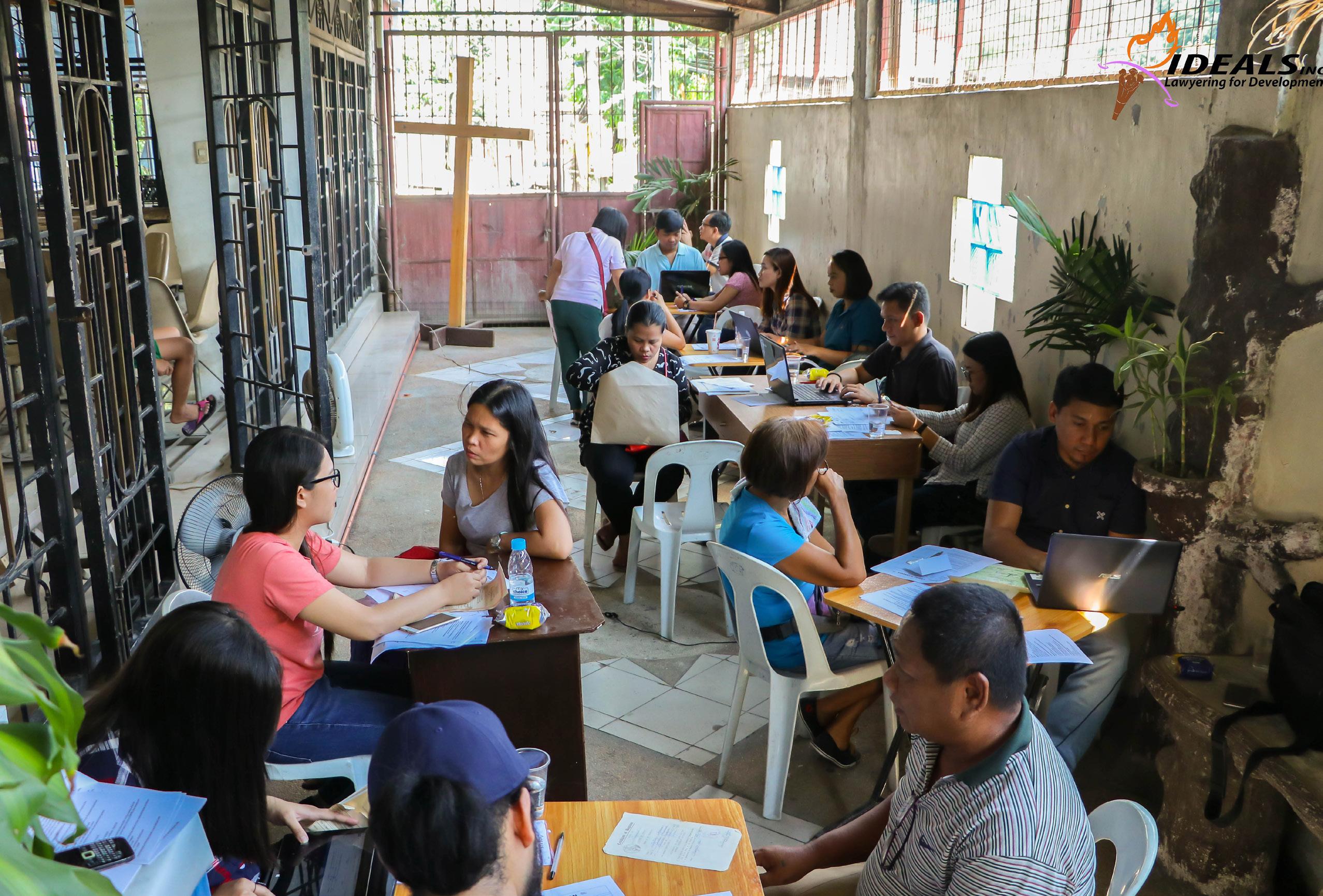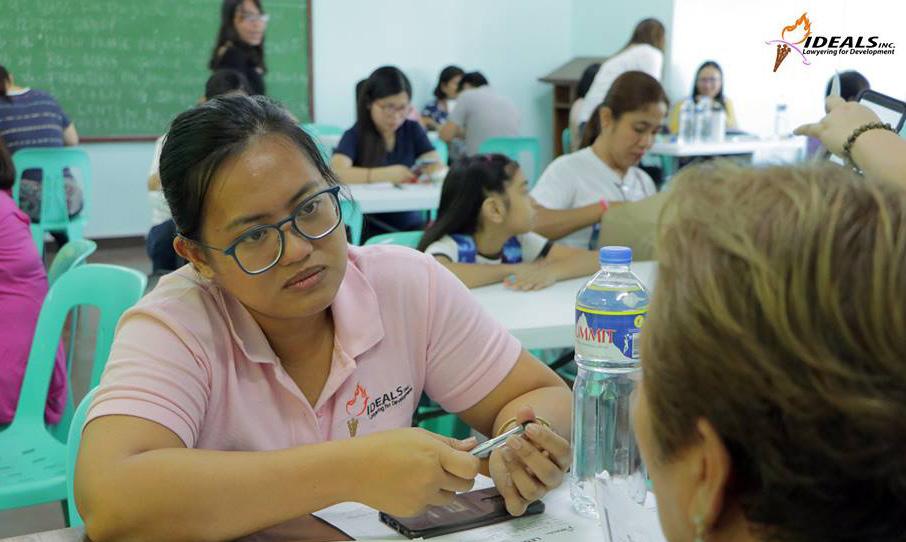
4 minute read
Human Rights Organizations Providing Assistance to HRV Surviving Families
41
Several organizations provide specialized services to to assist surviving families of HRV victims towards coping and recovery from the abuse they were subjected to, in addition to providing for the clients’ legal and non-legal needs.
Advertisement
A government organization mandated to respond to cases of HRVs is the Commission on Human Rights (CHR), an independent national human rights institution. The CHR, established in 1987, is authorized to investigate cases of State-sponsored violence and hold the government accountable in their responsibility of upholding, respecting, and fulfilling human rights (Commission on Human Rights [CHR], n.d.). Since Pres. Duterte took office in 2016, the organization has been doubling its effort in calling for accountability and assisting the survivors to seek justice and recover from the incident. Some of the services of the organization include provision of free legal assistance to clients such as advice and counseling, technical assistance to organizations through human rights education and training, and advocacy and campaign work for human rights (CHR, n.d.).
International organizations, specifically those with Philippine-based hubs, help the HRV survivors in their quest for justice. Amnesty International Philippines, for example, lobbies and advocates for human rights, pushes for the passing of several laws protecting the rights of the vulnerable sector, facilitates the release of the wrongfully accused from incarceration, documents cases of HRVs, and creates reports on the current state of the country in the context of the WoD (Amnesty International Philippines, n.d.). Human Rights Watch, like Amnesty International, investigates cases of HRVs, lobbies for policy changes concerning human rights, and creates yearly reports uncovering the state of the WoD in the Philippines (Human Rights Watch, n.d.).
Several local organizations also contribute their services to survivors of human rights violations. The Free Legal Assistance Group, the oldest human rights legal group in the country, advocates and campaigns for the fulfillment and respect for human rights and assists survivors by providing them with legal services (Free Legal Assistance Group, n.d.). The Philippines Human Rights Information Center, more commonly known as PhilRights, leads the creation of research and reports on the current human rights situation in the country. It also campaigns for the fulfillment of human rights by the State and provides educational and informational materials and training for the advocacy of human rights (PhilRights, n.d.). The Initiatives for Dialogue and Empowerment through Alternative Legal Services, Inc. (IDEALS, Inc.), on the other hand, provides community-based legal missions and documents cases of human
42
rights violations (IDEALS, Inc., 2019). KARAPATAN Alliance for the Advancement of People’s Rights rallies for the defense of human rights, and they fulfill this by providing educational training, campaign and advocacy work, legal and psychosocial services to survivors of HRVs, and research work (KARAPATAN, 2007).
Like KARAPATAN, the following organizations provide psychosocial services and/or legal assistance to HRV survivors and their families. The Children’s Rehabilitation Center, whose main thrust is the protection of the rights of children, conducts advocacy work and the provision of psychosocial intervention to children and families who experienced HRVs. They also partner with different law groups for case documentation and should their clientele need representation in courts (Children’s Rehabilitation Center, n.d.). BALAY Rehabilitation Center provides psychosocial intervention to survivors of Statesponsored violence through social, psychological, medical, and legal services (BALAY Rehabilitation Center, n.d.). The Salinlahi Alliance for Children’s Concerns is a group of organizations providing direct services to children and families affected by HRVs, as well as doing advocacy and campaign work for the protection of children’s rights (Salinlahi, n.d.). The Medical Action Group (MAG), established in 1982, provides medical assistance to vulnerable groups and survivors of State-sponsored violence. They also partner with different groups to advocate for the protection of human rights (Medical Action Group, n.d.). Rise Up for Life and for Rights provides direct assistance to HRV survivors such as psychosocial and legal services and partakes in advocacy work (Rise Up for Life and for Rights, n.d.).
Notable to mention are the efforts of different religious groups to support surviving families. The church and other religious affiliations become one of the immediate support systems of the families. Project Support for Orphans and Widows (Project SOW) provides psychosocial-spiritual services to families left behind by the WoD. Project SOW goes into the grassroots to directly work with the survivors. They recognize that the lack of access to basic necessities of the survivors is in itself a human rights violation (Boghani, 2019). PAGHILOM, a program under the AJ Kalinga Foundation, focuses on the left-behind families of EJK victims by providing them with basic necessities such as food and health care, psychospiritual services, legal assistance, educational assistance, and livelihood opportunities (AJ Kalinga Foundation Inc., n.d.).
These organizations and many others cooperate and coordinate with each other to help survivors cope and recover from the abuses they have endured. The families have the combined support of different institutions to assist them in seeking justice and accountability, possible through the provision of psychosocial services that respond to their basic needs, legal services, community mobilization, and advocacy and campaign work for policy changes. The main thrust of such collaboration is for the survivors to be able to heal from their wounds, be able to stand on their own, and ultimately, be able to fight for justice and transitional change. However, as mentioned, these organizations
43





